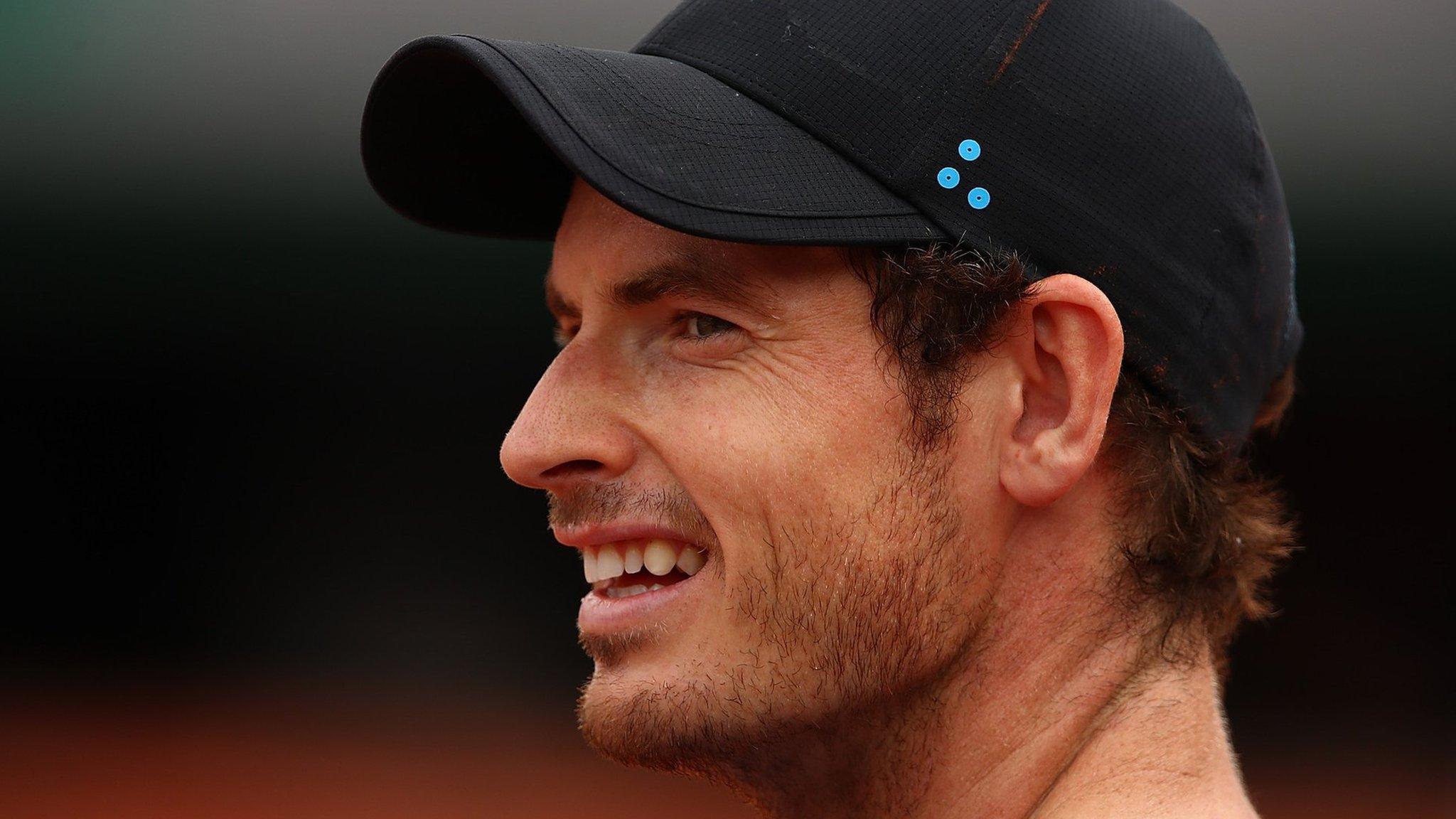GB Sevens merger: SRU treads carefully with future of sevens team
- Published
- comments
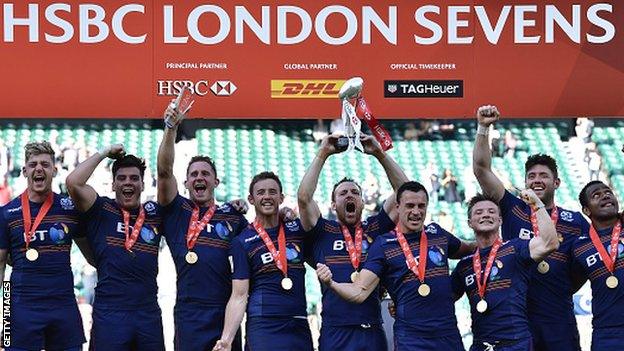
Scotland retained the London Sevens title at Twickenham
A few years back, there was talk within Murrayfield of shutting down the national sevens team.
The logic was that the sevens' bang for the Scottish Rugby Union buck was barely audible even to those with bionic ears.
Rugby Sevens is terrific sport, but Scotland's team was struggling, and showing little sign of progression. It wasn't developing players for Glasgow or Edinburgh or Scotland - a key remit - and it was costing too much money to a union that was not exactly flush.
If the feeling inside the SRU was that it could close it down without too much fuss, it was wrong.
Scotland's relationship with sevens is an odd one. For months on end the country does a very convincing impression of a land that has only a superficial interest in it, a string of disappointing performances on the World Series being met with indifference. Scotland could lose to Papua New Guinea and the reaction from rugby folk and media alike would be a collective shrug.
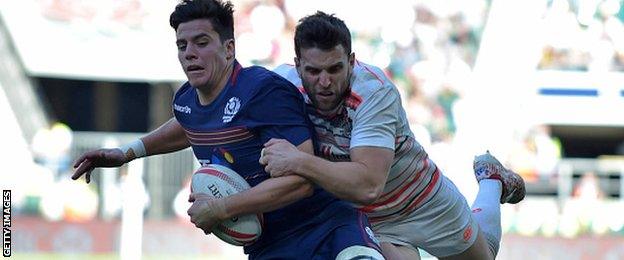
Scotland beat England in the final of the London Sevens after beating New Zealand in the quarter-final
When they win, things change, though.
Last year, Scotland won the London Sevens and the response was like they'd just topped the bill at the greatest show on earth. It was a similar reaction recently when they retained their London title. The profile of the players, and what they achieved, went through the roof.
In the business of the sevens, Scotland can flit between indifference and euphoria on a weekly basis.
In the face of protest, the SRU backtracked on its decision to shut things down. It tweaked the programme and let it run. Scotland finished seventh in the World Series standings this season, the same position they occupied two years ago when Murrayfield was getting jittery.
Last week, there was a deja vu moment when a report stated that the SRU was in talks with its counterparts in England and Wales about a possible amalgamation of three sevens sides into one for the World Series from 2018-19.
Under this proposal, Scotland would still retain a separate team in the second tier of European Sevens while also competing under their own flag at the Commonwealth Games, but critics of the idea have pointed out that if Scotland's players are playing at a lower level then it undermines everything the programme is supposed to be about - namely, winning at the elite end but, most importantly, developing talent for the XVs.
It's true. The three unions have spoken and will speak again. Given the previous mooted purge, there is suspicion in Scotland that this is a fait accompli, that the SRU is gunning for the sevens again in an attempt to save money.
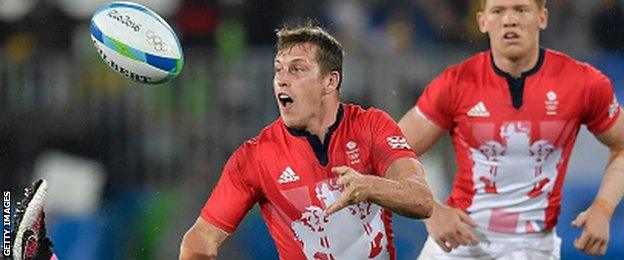
Mark Bennett won a silver medal as part of Team GB's sevens team at the Rio Olympics in 2016
Sources close to Murrayfield say, however, that no deal has been done to change anything and that they would need "a huge amount of persuasion" to make them accept that a merger was in the interests of Scottish Rugby.
The union is happy with its sevens programme as it is and not minded to change it. A final decision on all of this is not due until around September.
Here's the thing with the sevens. It's in the Olympics now. In Rio, it was a big hit and there is huge excitement about what it might become in Tokyo in 2020 and beyond. There's profile for the sport to be won, but also there is cash. Olympic cash, sponsorship cash. Potentially loads of it. Team GB can't miss out on this good thing.
In some quarters, there's concern that they might. You have to finish in the top-four in the World Series to guarantee a slot at the Games and the rationale behind this idea is that a combined three-nations team (sharing expertise and cost) would be a better bet at achieving Olympic qualification.
Former Scotland Sevens and Team GB Sevens international Mark Robertson |
|---|
"Over the last three years, I've seen the squad go from strength to strength, and achieve something not many Scottish teams in any sport do: win at a world level. |
"Three years ago when the SRU said to us, we're not sure of the future of the sevens, I knew there was merit in that, because we were going round the world not achieving much, and not bringing through quality young players. |
"Now, youngsters are coming in and getting exposed to high-level rugby, and becoming more robust athletes, because they've been exposed to high-stress situations where they've got to cope under masses of pressure. |
"If the SRU were to get another professional XVs team, and have more boys playing through that avenue, maybe from a financial point of view, it doesn't merit having the sevens." |
For the Rio Games, GB qualified because a monied England performed well in the World Series. Now there's mention that England Sevens might not be as monied in the future as they are in the present, so an amalgamation has been mentioned.
This is being encouraged, subtly, by World Rugby. As far as they're concerned, a combined GB team in the World Series makes more space on the circuit for a nation, or nations, with a big market to exploit. Sources say that World Rugby is treading softly, but that it would definitely support a merger.
If Murrayfield stick to their current position and resist change then you can see the logic. The sevens team still has a long way to go before it can be considered a success, but it's showing improvement, no question. It makes no sense at all to undermine it now - for Scotland infinitely more than for England, with their 12 senior clubs feeding players to the national team, and Wales, who have four.
The sevens are Scotland's de facto third professional franchise. They're all the SRU can afford. In previous years, the sevens programme operated in relative isolation, but now it has a more defined purpose. It's an amalgam of sevens veterans, young guns from the academy with an eye on XVs and experienced XVs players who are down on their luck and in need of confidence. That was Stuart Hogg in 2014 and it was Mark Bennett in 2016.
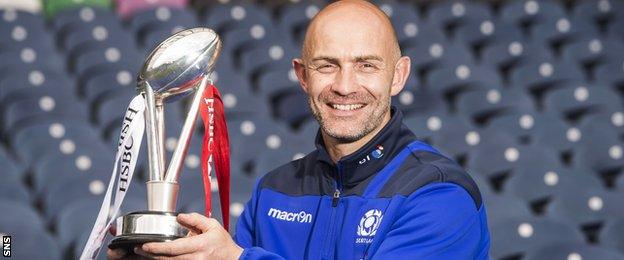
Scotland Sevens coach Calum MacRae will join the Edinburgh coaching staff next season
The SRU knows that by giving up Scotland's place in the World Series they relegate themselves to the humdrum of Europe's second tier thereby weakening one of their few breeding grounds for the next generation, not just for young Scottish players but for young Scottish coaches.
Calum MacRae did a fine job with the sevens and has now moved up to become part of Richard Cockerill's set-up with Edinburgh. In his stead comes John Dalziel, who will see a similar pathway.
Rowing in with Team GB in the World Series could dynamite all of that. It might bring in Olympic money and extra sponsorship, but at what cost? Right now, thankfully, it seems the SRU is looking at big picture rather than pound signs.
- Published30 May 2017
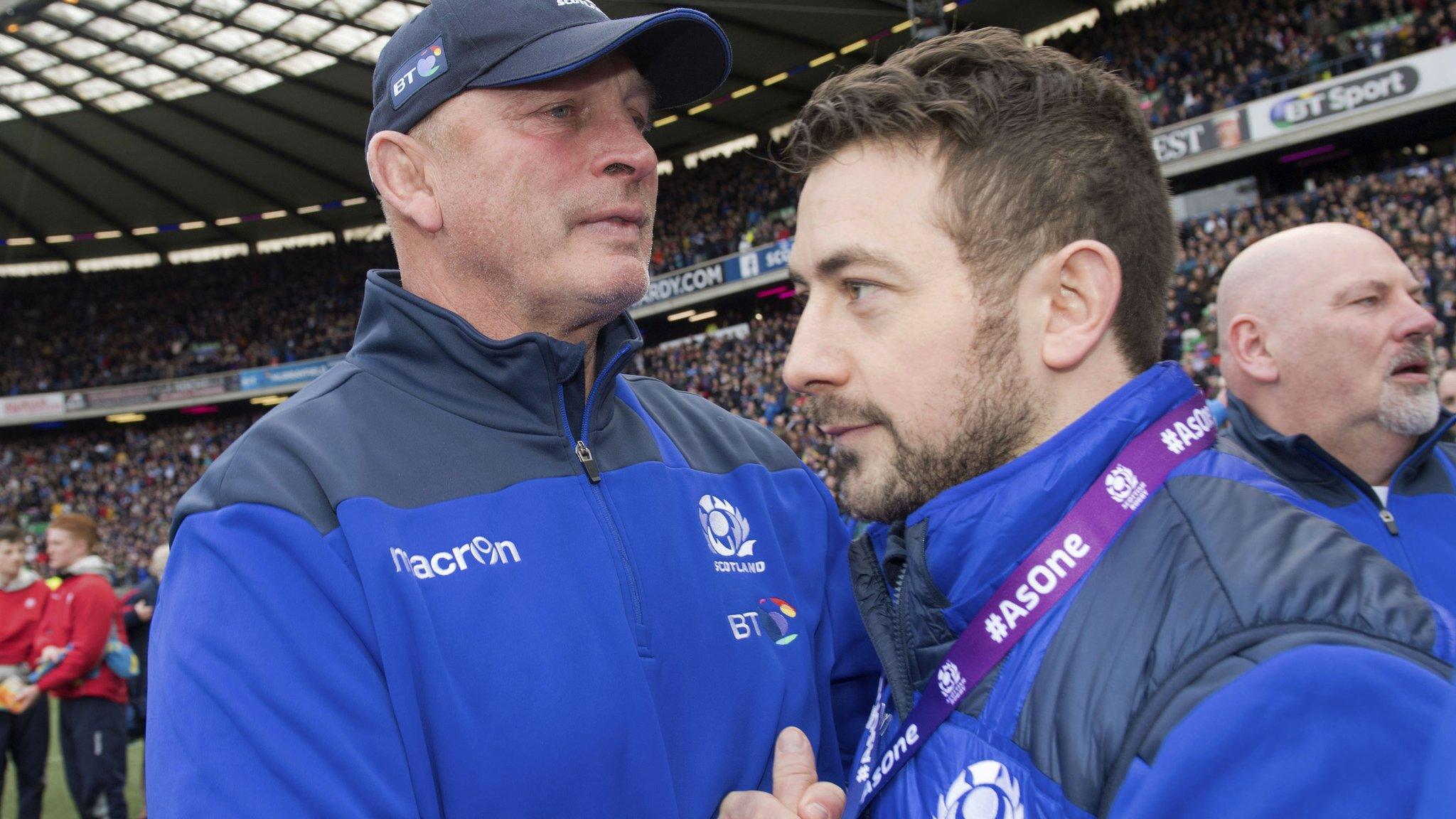
- Published30 May 2017
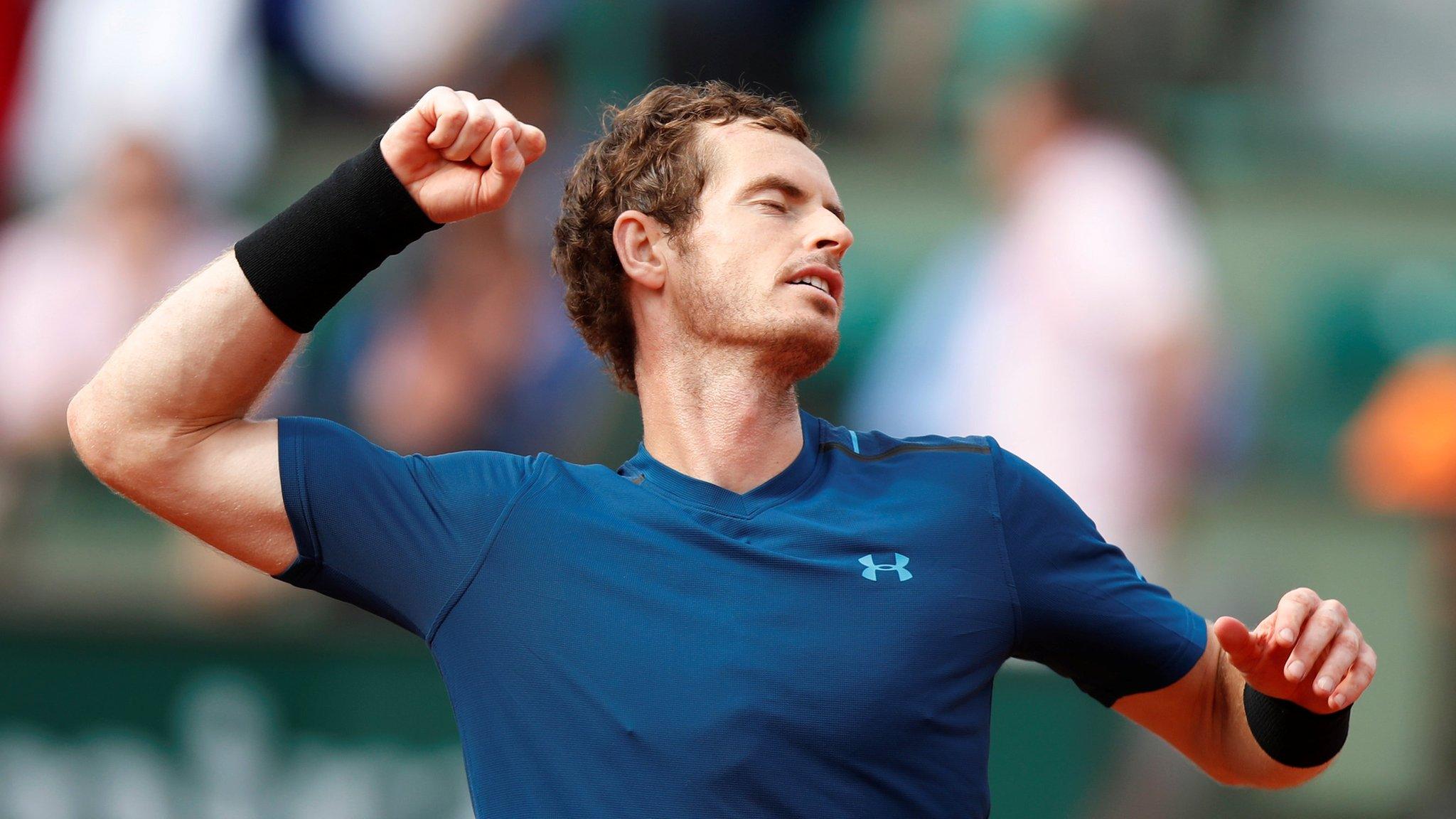
- Published30 May 2017
